Thanks to lockdowns, restrictions and jabs, 2021 was a year that might be described, to put it kindly, as challenging. We can only hope that one day we will look back on it and laugh. Or maybe we won’t.
In a time when we all needed some comic relief, the indefatigable Titus O’Reily came to our aid, with his romp Cheat: The Not-So-Subtle Art of Conning Your Way to Sporting Glory (published by Penguin, $35). He has written extensively about Australian sport, tongue firmly in cheek, but here he casts a wider net. He has a wonderful time recounting how virtually every sport has a legacy of dishonesty, from ball tampering to doping to fake injuries. Some cheating tricks are ingenious but many are just stupid. A personal favourite is the team in the Tour de France bicycle race that caught a train. Cheating is often for the money but it was rife even before sport became big business. Some people just to want to win, it seems, by any means necessary. Perhaps they should go into politics.
Another book which reminds us not to take ourselves too seriously was Great Furphies of Australian History by Jim Haynes (Allen & Unwin, $30). It is an enjoyable meander through the country’s myths and legends, with Haynes wading through some very dusty files to set the record straight – well, straight-ish, anyway. It seems that Banjo Paterson did not write ‘Waltzing Matilda’ (he wrote an early version that is a far cry from the one we know today). Captain Cook was actually a lieutenant. And, no, Australians are not the great drinkers that we think we are, coming in at a lowly number 17 on the international ranking. Haynes has a good time with all this, exploring how myths evolve and why many of them have carved a place in the national imagination.
With health at the top of everyone’s mind, Fake Medicine: Exposing the Wellness Crazes, Cons and Quacks Costing Us Our Health by Brad McKay (Hachette, $33) was a well-timed release. McKay, a GP who is also known as the host of a popular television series, sees the ‘wellness industry’ as essentially a mammoth fraud, driven by self-styled gurus who have mastered the art of internet selling. The trick is to convince people that they can find happiness through a pricey product labelled ‘organic’ or ‘holistic’. McKay also looks at the rise of fad diets, the proliferation of pseudo-drugs, and some of the more dubious treatment methods. Most are only a waste of money but a few are actually dangerous. He manages to make all this entertaining as well as informative, noting that a good dose of scepticism might be the best remedy.
A book with few laughs is Red Zone: China’s Challenge and Australia’s Future by Peter Hartcher (Black Inc, $33), a well-regarded journalist and currently a fellow of the Lowy Institute. Over the past decade Xi Jinping and his circle have waged a campaign to intimidate successive Australian governments into accepting China’s right to tell everyone else what to do. Hartcher examines the various methods used, including the Dastyari bribery scandal, attempts to mobilise the Chinese-Australian community to work for them, and trade bans. The Chinese leaders can be surprisingly cack-handed, at one point issuing a list of demands that made China look like not just a bully but a hypocritical and incompetent one. They have been astonished when Australia has pushed back, even joining the anti-China ‘Quad’ of countries. Beijing, says Hartcher, is creating the very environment it feared: everyone against it. Nevertheless, China is playing a long game, and whether Australia has the will to go the distance is an open question.
The chattering classes have long been puzzled by Scott Morrison. They were stunned when he sat down in the big chair, stung by his electoral victory in 2019, and confused by his (fairly) successful handling of the pandemic. They are now seeking to understand him, and the result is no fewer than three biographies of ScoMo. How Good is Scott Morrison? by Peter van Onselen and Wayne Errington (Hachette, $35) was a disappointing effort – disappointing because the authors had previously provided a worthy biography of John Howard. They focus on only a few incidents of his time as PM, and the result is a very shallow picture. They miss one of the most interesting questions of Morrison: how did he make the transition from the ‘stop the boats’ tough guy to the ‘daggy dad’ persona that now defines him? In Morrison’s background there is good evidence of both but the feeling here is that van Onselen and Errington could not be bothered to dig it out.
Annika Smethurst, a senior journalist, is more willing to do the research, and The Accidental Prime Minister (Hachette, $40) delves comprehensively into Morrison’s upbringing, early career and rise through the ministerial ranks. Morrison agreed to be interviewed for the book and there are also comments from friends, colleagues and enemies. When the Liberals got themselves into a leadership mess in 2018 he was the last man standing, and he grabbed the prize when it came into reach. Indeed, Smethurst seems to acknowledge that his ascension was ‘accidental’ only in the sense of being in the right place at the right time (mostly because he had organised it that way). He connects with middle Australia because that is exactly where he is from and he has never forgotten it. He generally has conservative beliefs but understands that pragmatism and flexibility are required, especially in times of crisis. The book is a solid account although it is often marred by snarky side comments and conclusions that seem to not reflect her research, such as the prediction that Morrison’s leadership might ‘unravel’.
In The Game: A Portrait of Scott Morrison (Black Inc, $33) Sean Kelly is determined to paint a dark picture. He argues that Morrison has no real beliefs and that his entire political approach is mere marketing. He notes occasions where Morrison has shifted positions but the depiction of him as an empty suit is difficult to accept, especially given his strong Pentecostal faith. It all reads as if Kelly came up with a catchy idea and selected evidence to fit. If Morrison was dogmatic and unswerving then Kelly would probably attack him for being an ideological extremist and religious zealot. He was an adviser to Rudd and Gillard before turning to a particular brand of left-wing commentary so The Game is mainly what one would expect.
In the field of fiction, the winner of the Miles Franklin Literary Award for the year was Amanda Lohrey for her seventh novel, The Labyrinth (Text Publishing, $30). The story is narrated by a city woman who moves to a small town on the NSW coast to be closer to her jailed son. But she is impelled by a dream to build a labyrinth, a process which Lohrey uses as an extended metaphor for a personal journey. At first the novel appears to be painfully sad but as it unfolds it becomes a story about hope and resilience. Not all who wander are lost, is the message, and not all who are lost are wanderers.
Another award-winning book is At Night All Blood Is Black by David Diop (Pushkin Press, $25), which took the 2021 International Booker Prize. Told from the perspective of a Senegalese man who is pushed into the French army to fight in the trenches in World War I, it is a nightmare of escalating madness and terror, although leavened with flashes of kindness, memory and insight into the human condition. At Night All Blood Is Black is short, little more than a novella, which goes to show that how you say what you say is more important than the extent to which you prattle.
An excess of prattling seems to lie at the heart of many of the problems currently being seen in US culture. Indeed, our American cousins seem to have talked themselves into an awful quagmire of acrimony and discord. In Wrath: America Enraged (Encounter, $50), social anthropologist and academic Peter Wood tries to discern the reasons. The rise of social media, anonymous and instantaneous, made self-restraint and fair-mindedness look untenably outdated. Cable television producers realised that there was money in fostering rhetorical extremism. From this perspective, the election of Donald Trump was an outcome rather than a cause, but his combative approach sharpened the conflict. Wood hopes that the exhausting fires of rage will burn themselves out and the sensible centre will re-assert itself but he does not sound optimistic.
If Wood is looking at a big picture, the authors of Cynical Theories: How Activist Scholarship Made Everything about Race, Gender, and Identity – and Why This Harms Everybody (Swift Press, $23) drill down into the emergence of critical race theory (also now known as social justice theory). Helen Pluckrose and James Lindsay explain that the core premise is that all people are defined solely by group characteristics of race, gender and sexuality, with white males oppressing everyone else. For a time it was limited to elite universities and academic journals but it began to grow in influence around 2010. Eventually, social justice theory became a meta-narrative. It now bears the hallmarks of a religion: the true faith of the woke. They know what they know and will not be moved. Dissent is heresy. Pluckrose and Lindsay believe that reasonable people must fight this, with solid arguments, reliable data and personal courage. Someone has to bell the cat, they say.
Polarisation reached a remarkable extreme in the case of Hunter Biden, scion of Joe. In Laptop from Hell: Hunter Biden, Big Tech, and the Dirty Secrets the President Tried to Hide (Simon & Schuster, $45) Miranda Devine, an Australian journalist and occasional Speccie contributor who currently works in the US, makes her systematic way through the contents of his laptop computer, which he put in for repair but was too stoned to collect. It found its way into the public sphere in 2020, with a trove of information about Hunter’s dodgy financial deals (including apparent connections to his famous father), massive consumption of drugs and booze (mainly crack and vodka), and his many dalliances with prostitutes (sometimes complete with videos). Amazingly, the legacy media ignored it all, accepting the Democrat line that it was all a Russian disinformation plot. That sounded silly then; now it is all but unbelievable. You almost have to laugh – and if you don’t you will probably end up crying.
Despite strong competition this reviewer’s choice for the Trees Are Dying For This award, for the year’s most unnecessary book, goes to Chris Bowen, ALP frontbencher, for his book On Charlatans (Hachette, $17). The publisher of the ‘On … ’ series deserves credit for giving public figures an avenue to put forward original ideas and to survey the political environment but Bowen simply accuses anyone he doesn’t like of cheating, fraud and demagoguery, and recycles a lot of old ALP policies. Ho hum. He seems to have formed his views around 1983 and they have not moved much since then. He still sees Labor as the party of battlers and the Liberals as the party of toffs. It’s all very undergraduate. And Bowen is the smart, fair-minded thinker of his party, is he? It makes one wonder what the others must be like.
So, Chris, you have won a very cheap certificate. Suggestions for next year’s TADFT award are now open. And always welcome.
Got something to add? Join the discussion and comment below.
Get 10 issues for just $10
Subscribe to The Spectator Australia today for the next 10 magazine issues, plus full online access, for just $10.
You might disagree with half of it, but you’ll enjoy reading all of it. Try your first month for free, then just $2 a week for the remainder of your first year.

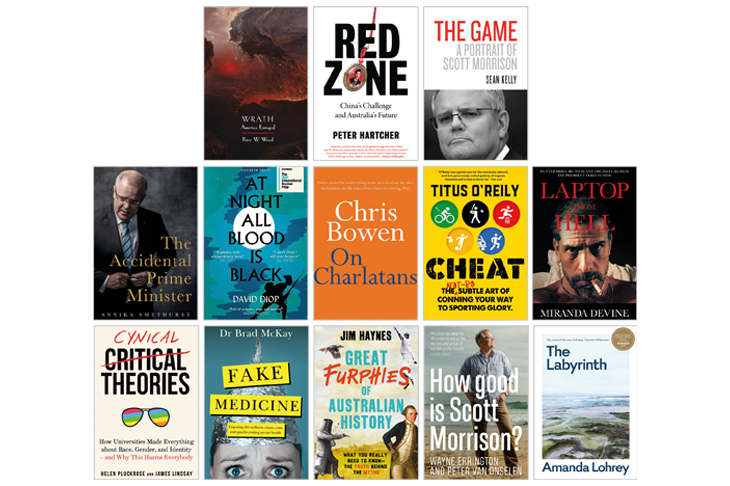
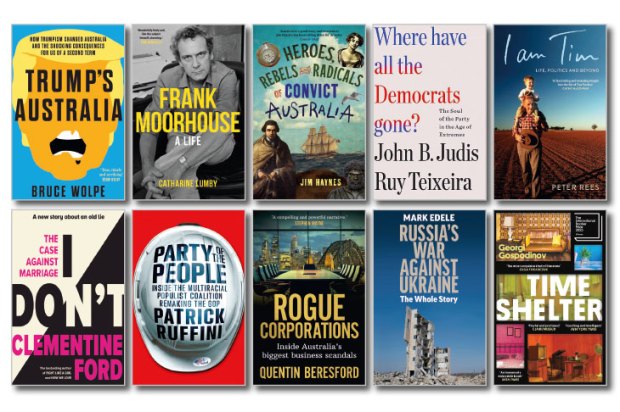
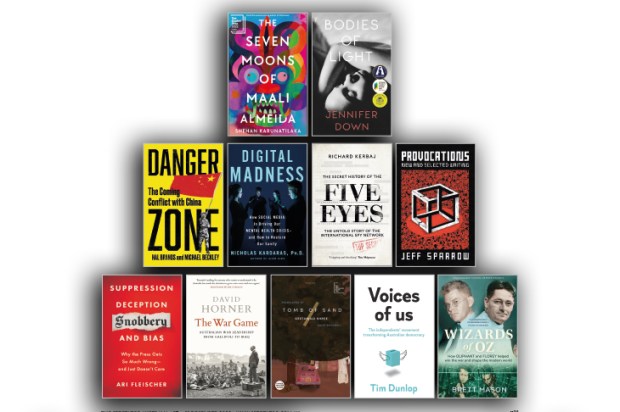
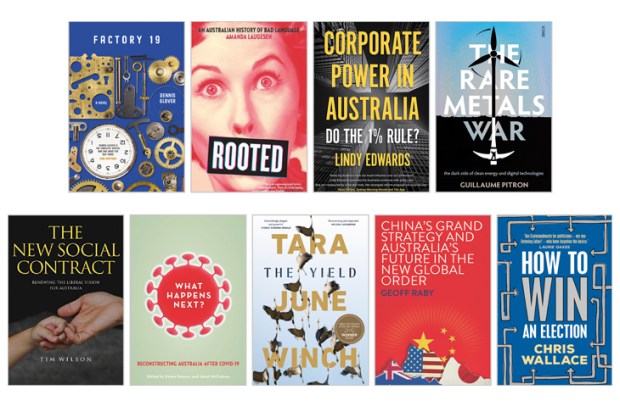
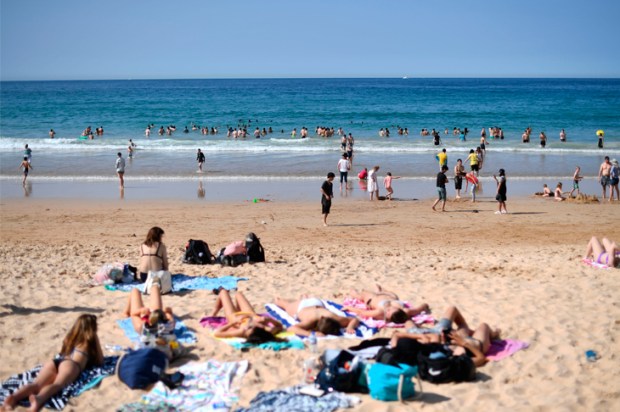
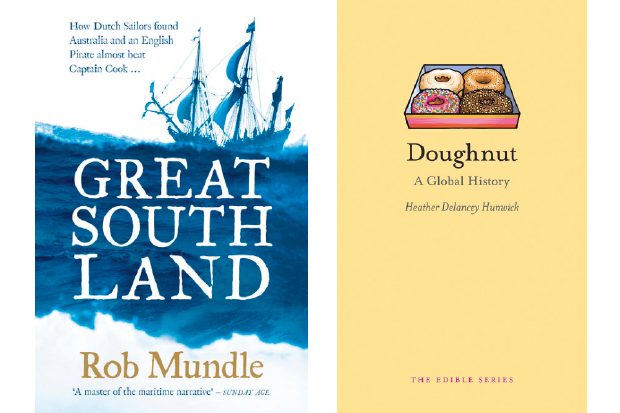
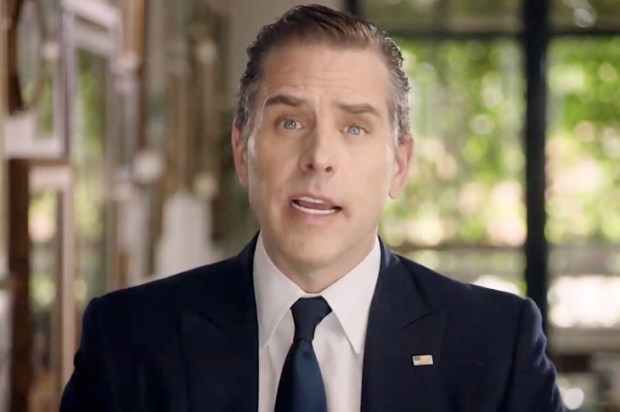






Comments
Don't miss out
Join the conversation with other Spectator Australia readers. Subscribe to leave a comment.
SUBSCRIBEAlready a subscriber? Log in